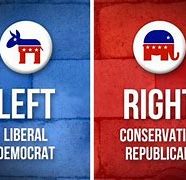
Winston Churchill supposedly said: “If you are not a Liberal when you are 20, you have no heart, and if you are not a Conservative when you are 40, you have no brain”. The assumption is that as you get older and gain income, buy property and start a family, preferences for security and stability become more dominant. Personal values and attitudes do change over time, and strategic brands must adapt to these evolving desires by fine tuning their promises, especially for their primary customers.
The risks of not staying current with the values of a brand’s core customer base can be disastrous. A recent example is the Bud Light promotion featuring a transgender influencer, Dylan Mulvaney. Bud Light’s main customers are relatively down scale, rural and less educated (e.g. similar to MAGA males) who are also conservative and anti-LGBTQ activists. The backlash was huge, leading to declining sales, incidents of harassment, executives fired and even legal threats by Ron DeSantis.
The Republican and Democratic parties are essentially brands which ideally offer a platform of promises that respond to the most important values and passions of their customer/voter base. Traditionally the voter profile for these political brands has been consistent with Churchill’s insight, where younger voters lean Democratic but eventually drift rightward to Republican beliefs.
However, recent history shows that the political, economic and social climate existing when young voters join the electorate impacts the level and intensity of political party preference, plus their tendency to switch over time. For example, Baby Boomers (b. 1946-64) started voting during the tumultuous 1960’s-early 1970’s (Viet Nam and Nixon years) and leaned heavily Democratic. On the other hand, late Boomers and early Generation X voters (b. 1965-80) were very influenced by the calmer Reagan/Bush administrations (1980’s) and identify more with Republican values.
Republican Values Do Not Appeal to Younger Voters Today
More recently, there are some trends that challenge the assumptions behind Churchill’s predictions and should unnerve the Republican Party and its current brand identity:
- Younger Lean Increasingly Democratic – Gen Z (b. 1997-2012) and Millennials (b. 1981-96) “identify with or lean” more toward Democrats (63% and 53% respectively) versus Republicans (32% and 40%) by a huge proportion. Meanwhile Gen X voters are more evenly divided (46% Democratic and 45% Republicans). The Boomers and the Silent Generation (b. 1928-45) are more Republican (52% and 61%) compared to Democrats (41% and 36%) – source: 2022 Pew Research.
- Emergence of Independent Identity – in a separate Gallup poll, the loyalty to either party is declining significantly, replaced by a bigger preference to be “considered” mainly as an Independent – Millennials and Gen Z both at 52% versus Generation X (44%), Boomers (33%) and Silent (26%)
- The Drift Toward More Conservative Is Questionable – loyalty to their chosen party, contrary to pre 1960’s voting patterns, has remained intact with over 90% of Americans continuing to identify with/lean toward their original, preferred party: 89% of 18-44 year olds and 95% of 45+ have stayed loyal to the Republican Party, while 94% of 18-44 and 95% of 45+ remained with Democrats. Since 2011, 40% or more U.S. adults have identified as political Independents every year, as trust in politics (the system and both parties) and government have now hit an all-time low (source: Brookings 2022).
The past 15 years have been relatively chaotic and transformative, alienating many new voters. After the 2008 recession, the younger generations have witnessed a right wing populist movement that threatens many democratic rights, reflected most notably by extremism in the Republican Party – e.g. government shutdowns, election denial, hostility to free and fair elections, anti-diversity or LBGTQ, gun control, the recent dysfunction of the House trying to elect a speaker, and most emotional the anti-abortion decision by the Republican led Supreme Court, basically taking away women’s rights.
Even as young “Liberals” grow older, today they do not foresee a culture of stability and pragmatism usually associated with Conservativism, but more disruption and turmoil evoked by extreme Republicans. Unless Conservatives adjust their platforms to conform to the current values and preferences of younger voters, in particular, the more vulnerable the Republican brand will become.


